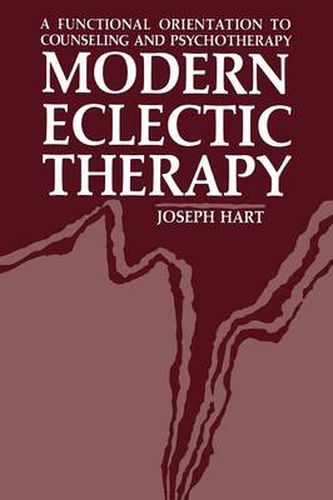Readings Newsletter
Become a Readings Member to make your shopping experience even easier.
Sign in or sign up for free!
You’re not far away from qualifying for FREE standard shipping within Australia
You’ve qualified for FREE standard shipping within Australia
The cart is loading…






This title is printed to order. This book may have been self-published. If so, we cannot guarantee the quality of the content. In the main most books will have gone through the editing process however some may not. We therefore suggest that you be aware of this before ordering this book. If in doubt check either the author or publisher’s details as we are unable to accept any returns unless they are faulty. Please contact us if you have any questions.
This book is a hybrid; it contains theoretical sections and sections de voted to technique; it attempts to provide a historical perspective and to give a contemporary formulation of theory and practice; and it dis cusses both practical problems of day-by-day therapy sessions and phil osophical issues related to the meaning of psychotherapy in modern society. In a way the book reflects, in its own style and contents, the subject it is about. Eclectic therapy is certainly a hybrid of many strains of influence; it is more diverse in its structures, theories, and techniques than any other therapeutic orientation. Still, eclectic therapy does have a definite consistency and coherency that I hope will be clearly revealed in this book. The plan of the book is as follows. In Part I, I will present the arguments and evidence that there is a modern trend toward eclecticism among therapists and then in Part II, tie this trend into the historical tradition of functionalism. Both the common features of clinical func tionalism and the specific ideas and methods of James, Janet, Burrow, Taft, and Thorne are presented. I believe it will be a revelation to many readers to see the contemporary significance of the therapies practiced by these eclectic pioneers.
$9.00 standard shipping within Australia
FREE standard shipping within Australia for orders over $100.00
Express & International shipping calculated at checkout
This title is printed to order. This book may have been self-published. If so, we cannot guarantee the quality of the content. In the main most books will have gone through the editing process however some may not. We therefore suggest that you be aware of this before ordering this book. If in doubt check either the author or publisher’s details as we are unable to accept any returns unless they are faulty. Please contact us if you have any questions.
This book is a hybrid; it contains theoretical sections and sections de voted to technique; it attempts to provide a historical perspective and to give a contemporary formulation of theory and practice; and it dis cusses both practical problems of day-by-day therapy sessions and phil osophical issues related to the meaning of psychotherapy in modern society. In a way the book reflects, in its own style and contents, the subject it is about. Eclectic therapy is certainly a hybrid of many strains of influence; it is more diverse in its structures, theories, and techniques than any other therapeutic orientation. Still, eclectic therapy does have a definite consistency and coherency that I hope will be clearly revealed in this book. The plan of the book is as follows. In Part I, I will present the arguments and evidence that there is a modern trend toward eclecticism among therapists and then in Part II, tie this trend into the historical tradition of functionalism. Both the common features of clinical func tionalism and the specific ideas and methods of James, Janet, Burrow, Taft, and Thorne are presented. I believe it will be a revelation to many readers to see the contemporary significance of the therapies practiced by these eclectic pioneers.